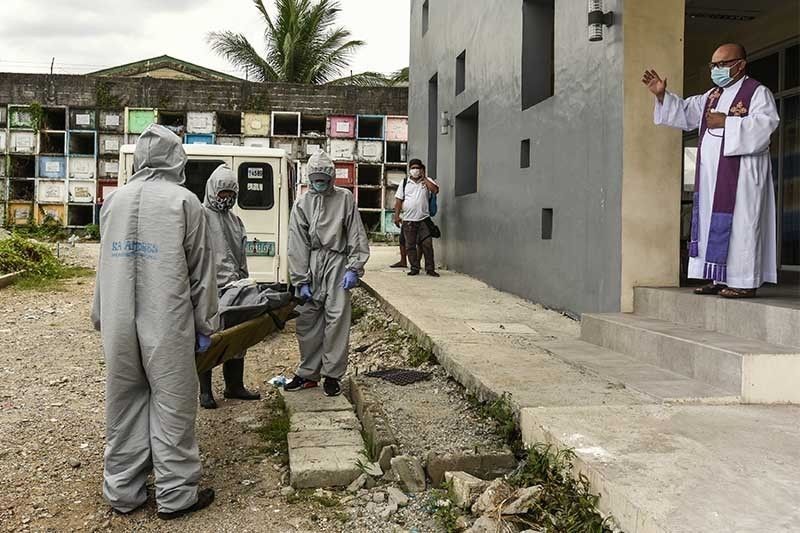Crematorium operators told: Control smoke, emissions

MANILA, Philippines — A pollution watchdog group on Thursday urged crematorium operators to carry out remedial measures to control the smoke from burning bodies as facilities struggle with COVID-deaths.
In a statement, the EcoWaste Coalition called for pollution remedial measures and urged crematorium operators to check if they have a valid permit to operate and if they are registered with the Environmental Management Bureau as a hazardous waste generator.
This comes after affected residents of Muntinlupa and Santa Rosa voiced their complaints on television against the stinking odor and thick smoke coming from public crematoria not far from their homes.
“Crematorium operators should waste no time in assessing their compliance to environmental regulations following these incidents,” said Thony Dizon, chemical safety campaigner of the EcoWaste Coalition.
“They need not wait for aggrieved citizens to turn to the media or for a video of thick smoke billowing from the stack to go viral before taking the right action,” he insisted.
Republic Act 8749, or the Clean Air Act, recognizes the people’s “right to breathe clean air” and directs the state to guarantee its enjoyment by all.
The toxics group added that every crematorium should have an accredited pollution control officer and be equipped with the necessary pollution control devices to keep emissions within allowable limits.
“While we lack local data on pollutants released by crematoria and their health impacts, it’s no secret that cremators release hazardous air pollutants,” said Dizon.
The coalition in its statement pointed to a 2018 study on the “Emission Characteristics of Harmful Air Pollutants from Cremators in Beijing, China” showed that emissions from facilities directly discharging flue gas exceed standards.
“The process of corpse cremation generates numerous harmful air pollutants, including particulate matter, sulfur dioxide, nitrogen oxides, volatile organic compounds, and heavy metals,” the report said, adding “these pollutants could have severe effects on the surrounding environment and human health.”
The group also cited a 2020 paper on “Crematoria Emissions and Air Quality Impacts” by the National Collaborating Centre for Environmental Health in Canada which asserted: "The pollutants of most concern are those known to be toxic to humans and which can bioaccumulate in tissues (for example, dioxins/furans and mercury) as well as fine particulate matter (PM 2.5), which can negatively impact the heart and lungs and is associated with some chronic illnesses and adverse birth outcomes.”
“The exceptional demand for bodies to be cremated amid the COVID-19 pandemic is no excuse to downplay the right of citizens to clean air,” Dizon said. “It’s a basic right protected by law.”
- Latest
- Trending

































